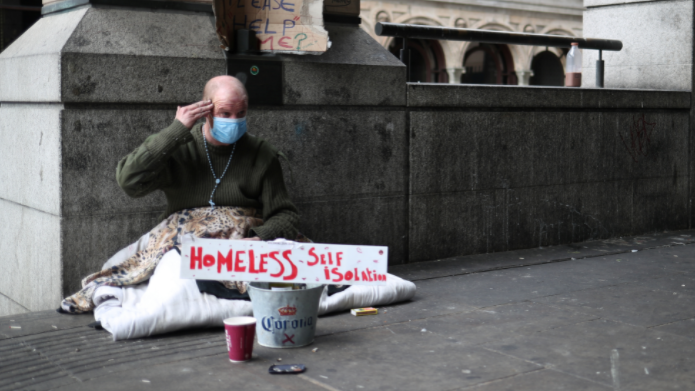Massively increased prices for food and energy caused will push millions of people into extreme poverty, according to economists’ predictions. The think tank issued a warning as forecasts show a record decline in the standard of living.
- According to the research, 12.5 million people will be unable to avail basic necessities in the near future.
- The average working-age family income is expected to fall by 4 percent in real terms in 2022-23, a loss of £1,100, with the poorest quarter of families experiencing a 6 percent drop in income.
- According to the analysis, Chancellor Rishi Sunak’s lack of support for low-income families in his Spring Statement means that 1.3 million people would fall into absolute poverty in 2022-23. It is the first time Britain has witnessed such an increase outside of a recession.
- Resolution Foundation chief executive Torsten Bell said that Sunak “has prioritized rebuilding his tax-cutting credentials over supporting the low-to-middle income households who will be hardest hit from the surging cost of living.
- ‘It means we’re all getting worse off, and at the bottom end, you’re having to cut essentials because you don’t have lots of luxury spending to forgo in the first place. That is really serious.’
- Bell went on to say that the Chancellor’s “policies do not measure up to the rhetoric,” pointing out that even with the July increase in the National Insurance threshold.
- In 2024-25, despite the promised 1p reduction in the basic rate of income tax in 2024, approximately 27 million of the 31 million British people in work will pay more in income tax and National Insurance.
- This comes on the heels of the government’s own forecasters, the Office for Budget Responsibility (OBR), who predicted that UK households would experience the greatest drop in living standards since records began in the 1950s.
- According to the OBR, wages are starting to fail to keep pace with inflation as rapidly rising energy costs push inflation to 9 percent.
- This drop-in spending power, combined with rising taxes, will result in a 2.2 percent drop in living standards. This is the largest drop on record.
- As a result, the standard of living will not recoup to pre-pandemic stages until 2024-25, according to the OBR.
- According to Paul Johnson, director of the Institute for Fiscal Studies, Sunak’s measures “will still not be enough to protect poorer households from a significant hit to their living standards.”
- According to the institute, this year’s near-3 percent drop in decent wages is the highest since the late 1970s, while public-sector pay is down 2.1 percent since the Conservatives took power in 2010.
- ‘The IFS analysis shows that the Conservatives are the party of pay cuts,’ TUC general secretary Frances O’Grady said.
- ‘Year after year, they have imposed real pay cuts on millions of workers. And this year, working people will face a real pay cut of more than £500 on average.’
- Their well-known ‘long-term economic plan’ resulted in wage cuts throughout the economy.
- Mr. Sunak, according to Labour’s shadow chancellor Rachel Reeves, failed to grasp the magnitude of the cost-of-living crisis. He said, ‘The Chancellor can say as many times as he wants that he’s a tax-cutting chancellor, but it’s like a kid in his bedroom playing air guitar — he’s not a rock star’.
- Mr. Sunak insisted that the measures he announced would safeguard the most vulnerable people.
- ‘It is absolutely correct that we assist those with the lowest incomes.” “I’m confident that the policies we’ve put in place are accomplishing that.’



